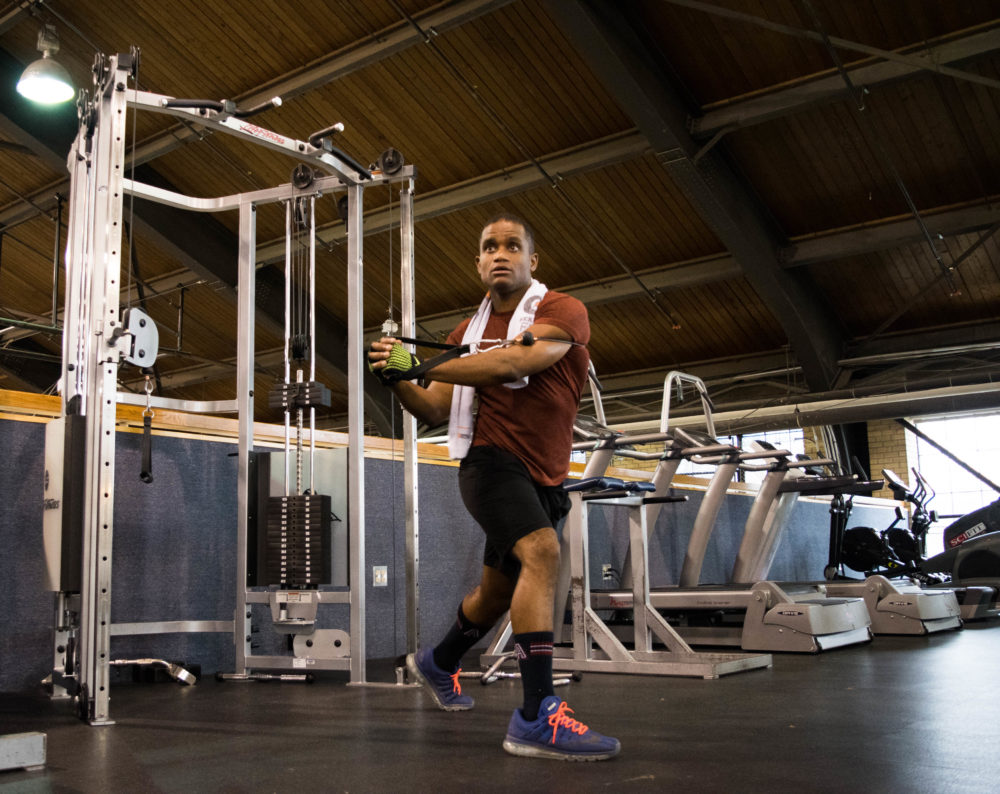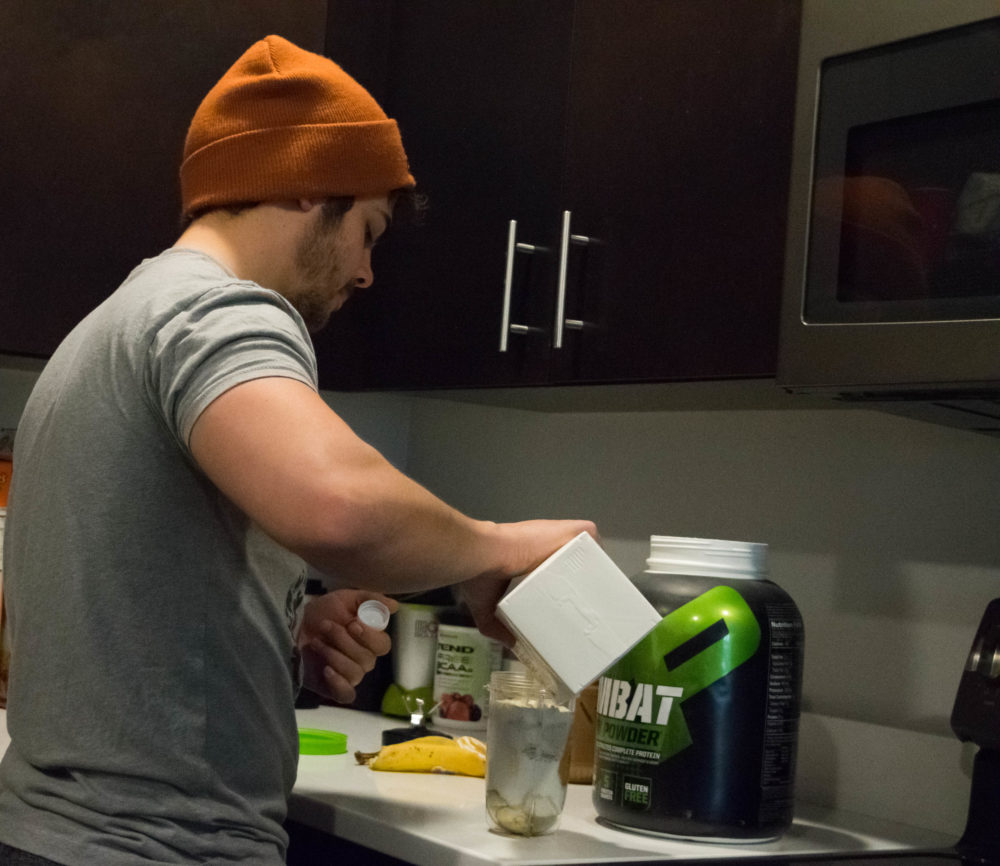Healthy habits for a healthy year: How to make those resolutions stick
The beginning of new year is the most popular time for setting personal goals.
One common new year’s resolution is to live a healthier lifestyle. However, many find developing healthy habits a difficult process due to not knowing where to start, lack of time or having unrealistic expectations.
A healthy lifestyle can be broken down into four different areas, including exercise, sleep, food and study. Here some some ideas on how to incorporate healthier choices into your daily life and start the year feeling good.
 Autumn Dunda
Autumn Dunda Utah State University student works out in the field house.
Exercise
Many Utah State University students want to exercise more at the beginning of the new year, but often let that resolution fall to the side as classes and life get in the way. To make it stick, exercise needs to become a habit.
Marisa Christensen, a personal trainer at the Aggie Recreation Center, suggested beginners should make a goal to come to the gym or physical activity two to three times a week.
“That’s a good baseline and good place to start,” she said.
The Arc and Fieldhouse are full of machines and weights for cardio and strength training. These centers also offer many intramural sports and outdoor programs.
“There is racquetball, pickleball, futsal, basketball and much more that we offer here. It’s a fun way to be active and be with friends,” Christensen said.
A major key to staying on track with fitness goals is to find an enjoyable activity and keep doing it. The gym is a place for positivity and self-improvement, so don’t be afraid to take that first step and just go.
Sleep
According to the National Sleep Foundation, a optimal amount of sleep for young adults is seven to nine hours a night. To achieve this, it is important to stick to a sleep schedule. Having a set routine will let the body know that it is time for bed.
For students who have trouble sleeping, one method to sleep easier is to eliminate daytime naps. Another method is to find a relaxing activity to do before bed. Reading a book, listening to a podcast or writing in a journal will help you wind down and sleep better.
 Autumn Dunda
Autumn Dunda Alex Eldredge makes a portien shake in his apartment after working out.
Food
As the old saying goes, people are what they eat. Choosing fruits and vegetables over processed foods will increase energy and improve overall mood.
Melissa Knowles, a dietetics major at USU, uses her instagram @nutrionistmelissa to promote a healthy lifestyle and share food ideas.
“For healthy eating, don’t restrict yourself,” she said. “Try to incorporate more fruits and vegetables into the diet you already have.”
While many students currently live away from home and may not always have access to a full kitchen, there are still ways to eat healthy.
“Have frozen vegetables on hand. You can cook them in the microwave or the stove. If you have a meal plan, make sure you fill up half your plate with fruits and vegetables,” Knowles said.
Study
Studying is the activity that often takes up most of a college student’s time, so make those study hours count. Effective studying habits include spreading out the workload.
Instead of cramming everything into one hour, break it up. This will allow more information to stick. Another way to retain information is talking it out. Explain a subject to someone else, which will help increase understanding of the material.
—shelby.black@aggiemail.usu.edu
@shelbsterblack

